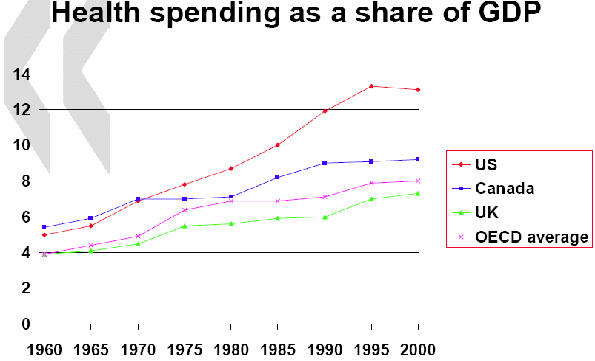 There’s a great deal of talk about how wonderful modern technology is. The internet, cell phones, and computers are the stars of this firmament. I believe such talk is somewhat overblown; the latest tech revolution is not as significant as many that have come before.
There’s a great deal of talk about how wonderful modern technology is. The internet, cell phones, and computers are the stars of this firmament. I believe such talk is somewhat overblown; the latest tech revolution is not as significant as many that have come before.
At least not in terms of doing good.
Let us examine what all this infotech really has changed.
Control. Massive control. Surveillance.
Just in time inventory. Not possible 50 years ago.
Second to second tracking of workers without having to have a supervisor physically watching them. Amazon warehouse workers carry devices which allow their workflow to be tracked to the second. And if they aren’t making their seconds, the supervisor is right on them. This wasn’t possible 30 years ago. If you wanted to have that sort of control, you had to have a supervisor physically watching them, and the cost was prohibitive.
This sort of tracking is used for clerical workers as well.
Outsourcing work that had to be kept domestic before. The massive call centers in Delhi and Ireland were not possible even 30 years ago. The cost was simply prohibitive.
Offshoring work, like manufacturing, was difficult to offshore before. Without real-time, high-density communications, cutting edge manufacturing overseas was very difficult in the past. You could offshore some things, certainly, but those industries tended to be mature industries: shipbuilding, textiles, and so on. Cutting edge industries, no, they had to be located close to the boffins or they were offshored to another, essentially First World country–as when Britain offshored much of their production to the United States in the late 19th century.
Commercial surveillance. Everything you buy is cross referenced. When you buy something at a major retailers, the store takes a picture of you and matches it with your information. All online purchase information is stored and centralized in databases. This information is shared. This includes, but goes far beyond, internet surveillance; witness Google or Facebook serving you ads based on what you’ve read or searched. Add this data to credit reports, bank accounts, and so on, and it provides a remarkably complete picture of your life, because everything you buy with anything but cash (and even some of that) is tracked. Where you are when you buy it is also tracked.
Government surveillance. Millions of cameras in London and most other First World cities. Millions of cameras in Chinese cities. Some transit systems now have audio surveillance. Because the government can seize any private surveillance as well, you can assume you’re being tracked all day in most First World cities. Add this to the commercial surveillance system described above and the picture of your life is startlingly accurate.
As biometric recognition system comes online (face, gait, infrared, and more) this work will be done automatically.
What the telecom and infotech revolution has done is enable wide scale CONTROL and SURVEILLANCE.
These are two sides of the same coin, you can’t control people if you don’t what they’re doing.
This control is most dictatorial, amusingly, in the private sector. The worse a job is, the more this sort of control has been used for super-Taylorization, making humans into little more than remotely controlled flesh robots.
It has made control of international conglomerates far easier; control from the top to the periphery far easier. This is true in the government and the military as well, where central commanders often control details like when bombs drop, rather than leaving it to a plane’s crew.
This is a world where only a few people have practical power. It is a world, not of radical decentralization, but of radical centralization.
This is a vast experiment. In the past, there have been surveillance and control societies. But the math on them has always been suspect. Sometimes they work, and work brilliantly–like in Tokugawa Japan, certain periods of Confucian Chinese bureaucratic control, or ancient Egypt.
But often they have been defeated, and fairly easily, by societies which allowed more freedom; less control, less spying, and supervision. Societies which assumed people knew what to do on their own; or just societies that understood that the cost of close supervision and surveillance was too high to support.
The old East German Stasi model, with one-third of the population spying on the other two-thirds was the ludicrous extension of this.
What the telecom and infotech revolutions have actually enabled is a vast experiment in de-skilling, surveillance, and control–beyond the dreams even of the late 19th century Taylorist movement, with their stopwatches and assembly lines. Nothing people do, from what they eat, to what entertainment they consume, to when and how well they sleep; let alone everything they do during their working day, is beyond reach.
This is not to say there are no good results from infotech and computers—there are plenty. But contrary to the idea that these technologies would increase freedom, they appear, on a daily basis, to have decreased freedom and privacy and promise to radically reduce them even more.
The second set of questions about any technology are how it can be used for violence, how it can be used for control, and how it can be used for ideological production.
(The first question, of course, is what is required to use it. More on that another time.)
Infotech may enable totalitarian societies which make those of the past look like kindergarten. We are already far past the technology used in the novel 1984 (Big Brother could not record, for example). That much of this surveillance is done by private actors as opposed to the government, does not reduce the loss of freedom, autonomy, and privacy.
Combined with making humans obsolete, infotech and the telecom revolution are as vastly important as their boosters say.
But, so far, not in a beneficial way. Yes, they could be used to make human lives better, it seems the real traction of the telecom and infotech revolutions remarkably began/coincided with neo-liberal policies which have hurt vast numbers of people in both the First and Third Worlds–precisely because they helped make those neo-liberal policies work.
Technologies are never neutral and there is no guarantee that “progress” will actually improve people’s lives. Even if a technology has the potential to improve people’s lives, potential is theoretical; i.e., not the same as practice.
Infotech and telecom tech are primarily control technologies, the same as writing was. They vastly increase the ability to centralize and to control a population’s behaviour.
(Read also: The Late Internet Revolution is Not So Big A Deal)



 There’s a great deal of talk about how wonderful modern technology is. The internet, cell phones, and computers are the stars of this firmament. I believe such talk is somewhat overblown;
There’s a great deal of talk about how wonderful modern technology is. The internet, cell phones, and computers are the stars of this firmament. I believe such talk is somewhat overblown;